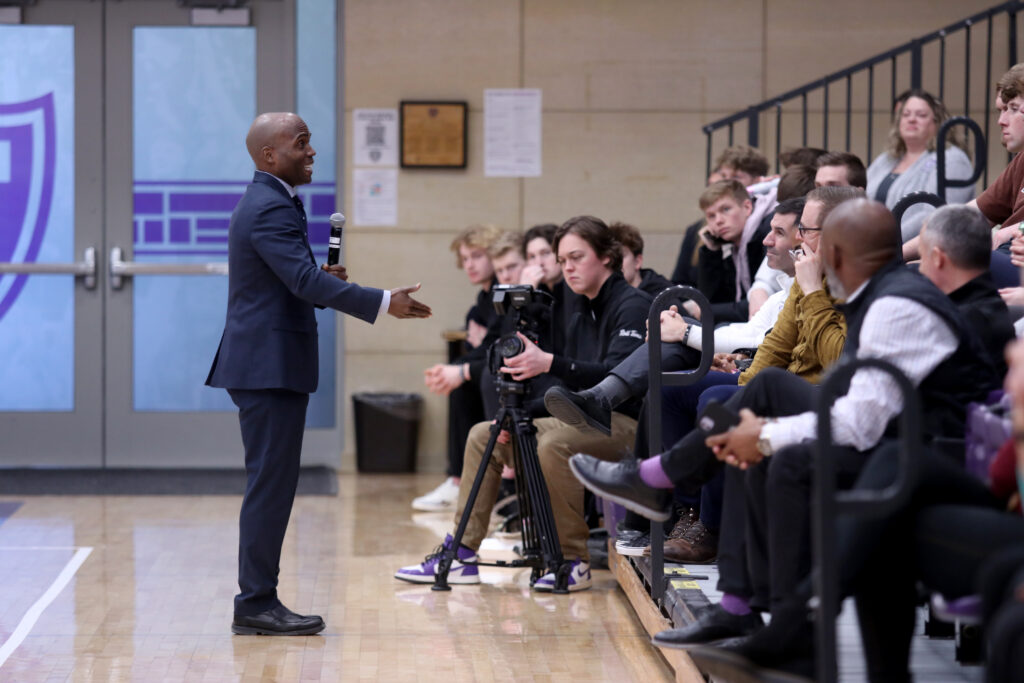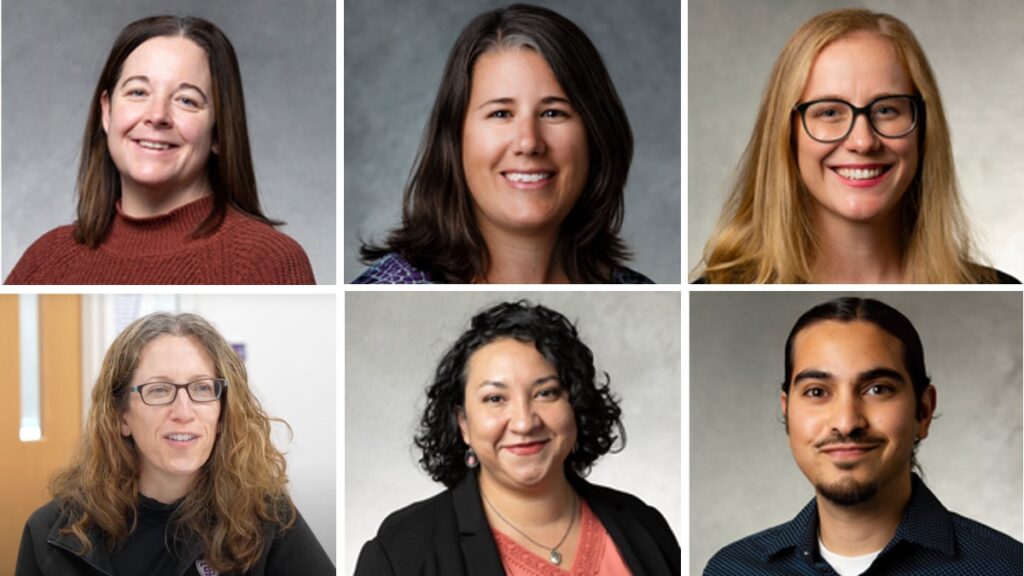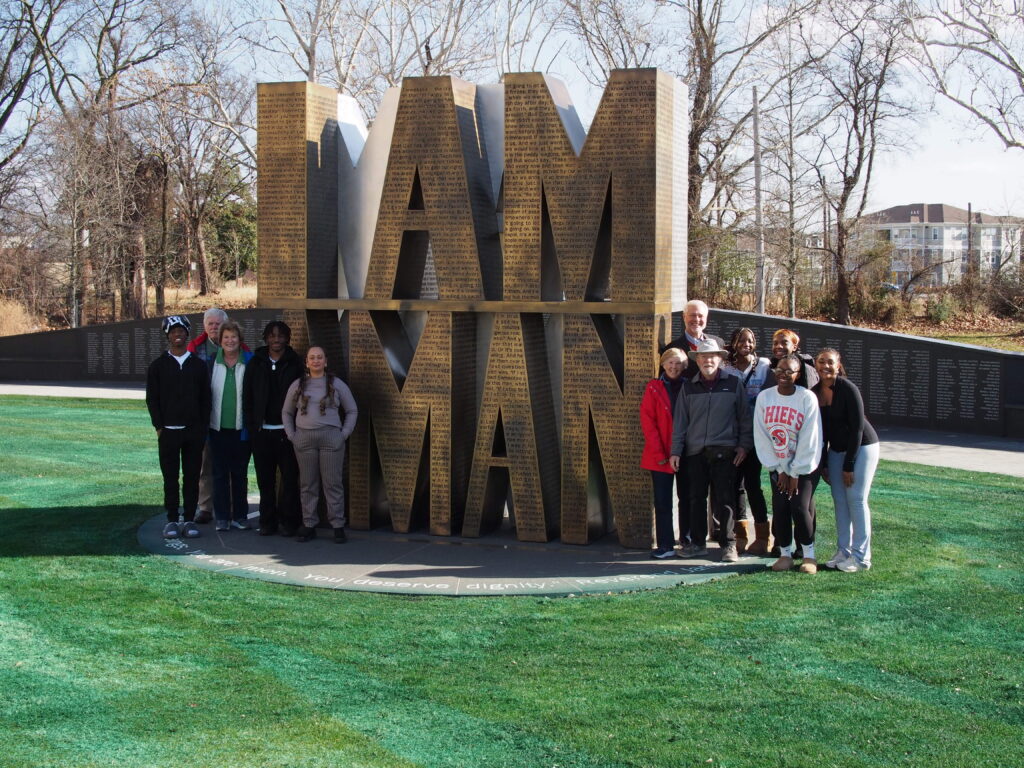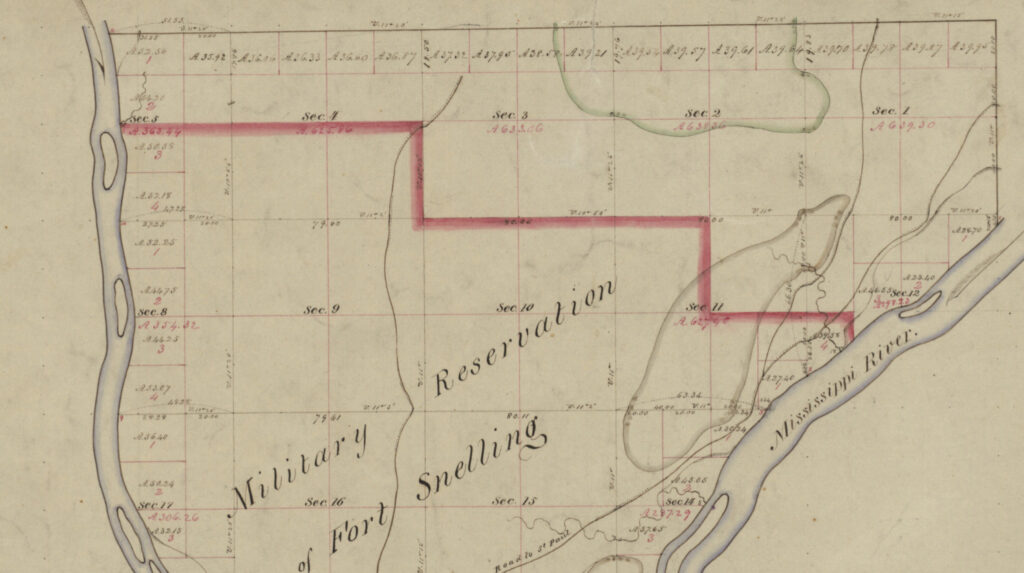Reverend Martin Luther King Jr. once said, “There are some things in our society, some things in our world, to which we should never be adjusted.” In that 1967 address, King elaborated that those things are poverty, racial inequality, denial of equal rights to people of color, to LGBTQIA+ communities, religious bigotry, Islamophobia and others.
Dr. Yohuru Williams, the founding director of the Racial Justice Initiative at the University of St. Thomas in the Twin Cities, discussed the meaning of King’s statement when he gathered with three local leaders for a 2021 panel discussion presented by the Minnesota Historical Society.
The personal activism of the participants, Williams said, “embody the very essence of what Dr. King talked about in that work.”
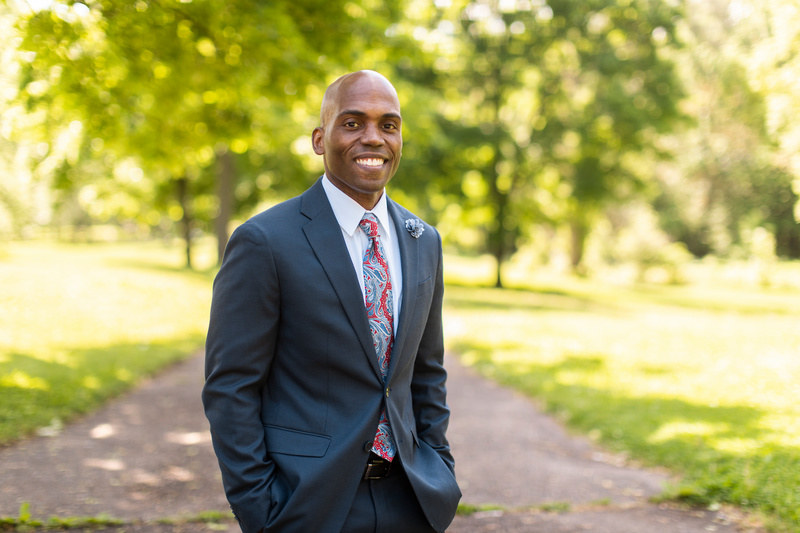
One question that Williams, who is also the Distinguished University Chair and a professor of history, posed to the leaders is: “Thinking about the work that all of you do in communities, and how we're thinking about activism going forward, in the shadow of George Floyd, in the shadow of the global pandemic, in the shadow of the ‘edifices of inequality,’ what is the message that you want to share this King Day about where we need to be headed in the next few months?”
Williams said these leaders, who include St. Thomas alumna Leslie Redmond '19 J.D./MBA, have refused to normalize injustice and inequality and are responding today with action, innovation, and persistence.
Here, we include selections from their conversation, edited for length and clarity.
Edrin Williams is the pastor and leader of the Sanctuary Covenant Church in Minneapolis. He said:
When Dr. King said there are some things that we should not be adjusted to, we should never be adjusted to, I agree that there are just some things that are so wrong when it comes to our world, our country, or nation that I don't want to be OK with it, I don't want to be comfortable with it, I don't want to see it and then say, “Oh, that's just the way it is.” There are some things for which we should always say, “That's wrong, that's broken, that's less than God's best for us” from a faith perspective.

Reverend Dr. Martin Luther King, his faith was what compelled him to do the things that he did, and a part of it was that his faith, his Christian faith, his faith in Jesus, gave him a vision of this world that was and was to come. He was always working toward what he later labeled the beloved community and so, from a faith perspective, I don't have to imagine what it would be like for our world to be better, I've already been given an image of it. And I am, day in and day out, working toward that beloved community. So, when the work is hard, when it seems impossible, when I want to personally quit, when I'm afraid that I might lose my life in the course of doing this work, this image of the beloved community and my faith – knowing that God is with me in this work and I'm doing God's work – that is what allows me to keep going. I think there are many examples through Dr. King's life to Malcolm X's life, where their faith allowed them to do things that they could not do on their own.
It's hard to really understand the Black experience in America divorced from faith. I know there are, particularly in progressive circles, people who are suspicious of faith and they want to keep the church out of the nonprofit sector [but] you cannot talk about the well-being of our community and divorce that from the church. When we had nothing else, when there were no other institutions that would serve us, the church served us. I think a part of reclaiming Dr. King's legacy is reminding people that faith was a core aspect of what made him do the things he did, and what made him get up when that work knocked him down.
The amount of work that it takes to change America can't be done just by Black folks. And so, there are some responsibilities that sit with our white brothers and sisters, and other ethnic communities, as well. And being in a multiethnic church allows me to bring others along on the journey.
Leslie Redmond is an attorney who, when she was 25, became the youngest president of the Minneapolis NAACP. She said:
Reverend Dr. Martin Luther King was talking about the threat of maintaining order often means maintaining inequality. It becomes a question of order for who, right? Because when I sat on the lawn to demand justice for Breonna Taylor, a young Black woman who reminds me so much of myself, who was murdered in her home, I was threatened with a felony charge and two misdemeanors for sitting on a lawn. Now, I couldn't imagine us [as Black people] breaking into the Capitol, stealing from the Capitol, and living to talk about it.
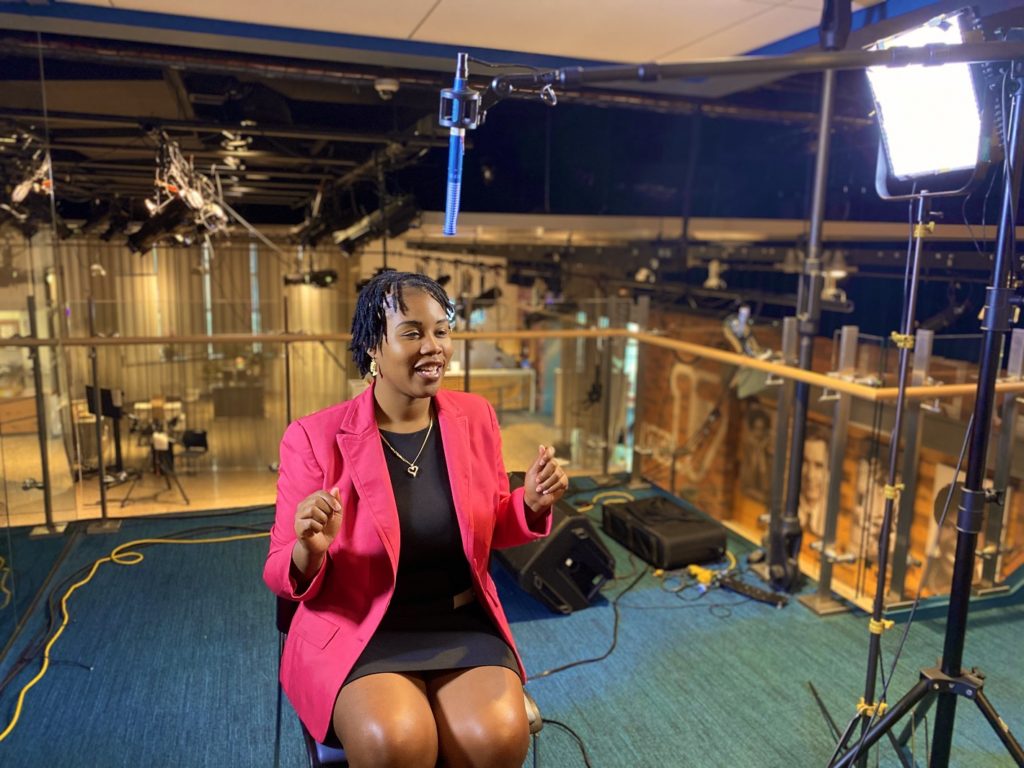
How do we go forward? One, reparations now. If there's going to be any effort for Black people to be able to have any stance in America, we need reparations for the harm that has been done. And if you don't consider yourself, like the people who broke into the Capitol, and the domestic terrorism that the Black community has faced for centuries in this country, then you need to stand with us for reparations. And you need to also recognize that this is not about white versus Black. This is about everybody versus white supremacy. And in order for us to get justice, you're gonna have to give up some of your privilege and give up some of your power, just like I did when I was arrested for the first time. I had never been arrested. I never planned on being arrested. But we're gonna have to get out of our comfort.
And while I recognize that faith has played a tremendous role, the church does need to step up, period and point blank. Because Reverend Dr. Martin Luther King was on the ground, right? The church is still relevant, the NAACP is still relevant, but we all need to do more. Because what happened on Jan. 6 [2021] was showing how hard white supremacy is willing to fight. So, the question becomes, how hard are we willing to fight for justice? And a lot of us are too comfortable. We’ve become comfortable and complicit in our own oppression. And enough is enough.
Adair Mosley is president and CEO of Pillsbury United Communities, a community impact agency in Minneapolis. He said:
I believe history tells us everything. And what Dr. King spoke about continues to remain relevant. It is enduring. It is the playbook. And I think it's going to need bold and courageous leaders at the forefront of it, and people who will put aside politics. People, who will put aside, really, their own personal agendas, to be able to achieve the collective good. And I believe this moment needs it. I believe we have those bold, and those really bold and courageous leaders, who are ready to fight for this level of justice.
Oftentimes how we come and think about Black and brown communities is through the lens of charity. But what people were really saying to us is, we want you to restore dignity in our community. That it means something to have a grocery store so that we don't have to travel outside of our community to be able to have access to [one]. And I think that's the lens by which we're doing this work. Every moment that we stand up an innovative solution, it's about restoring dignity, the things that have been long denied in our community to Black bodies – things that other communities take for granted.
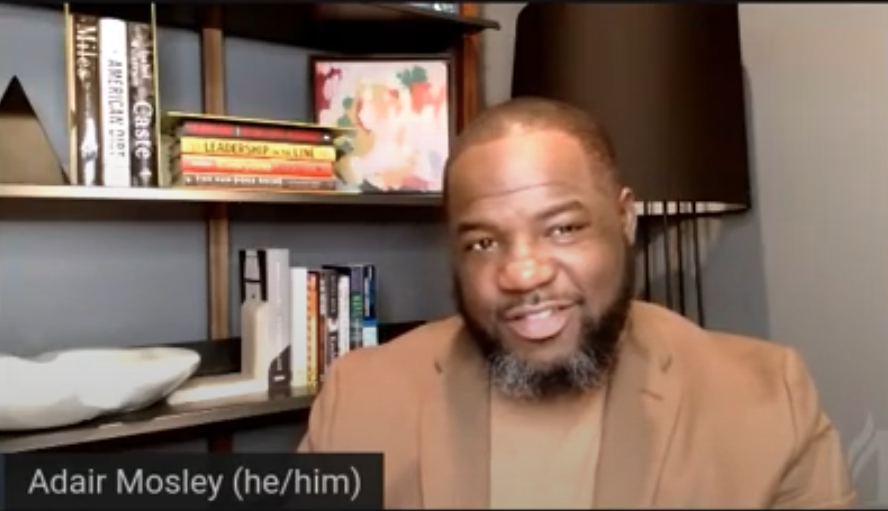
And I think the things that we need to be thinking about, to your point, is about this enduring change. And what are the levers that we need to pull as a society that gets us through several generations? And that's really having the long-term view.
Now, I will tell you that I believe this moment, this movement, calls for both, right? We need people right now in this moment who are fighting for really deep inequities in the injustices that rest, and who will not tire of that. And then we need individuals who are thinking long term about the policies and the systems. And what we need is to understand the congruency between those two. And, really, that those two work together to create this just society that we all envision.
And it's about all of us having the personal and moral kind of orientation to fighting toward that justice. It’s [also about] entering in community with a sense of humility, great humility, and asking communities “What do you need?” rather than “Here's what you need.” I believe when you ask that simple question of humility, it will unearth dreams and aspirations beyond our own wild imaginations.
Community has the answer to its solutions. And it is up to us – those who have power, and position, and platforms, and institutions – it is up to us to leverage those things on behalf of communities’ dreams. And I believe we'll get there, and be able to build something that is truly equitable in this time.
